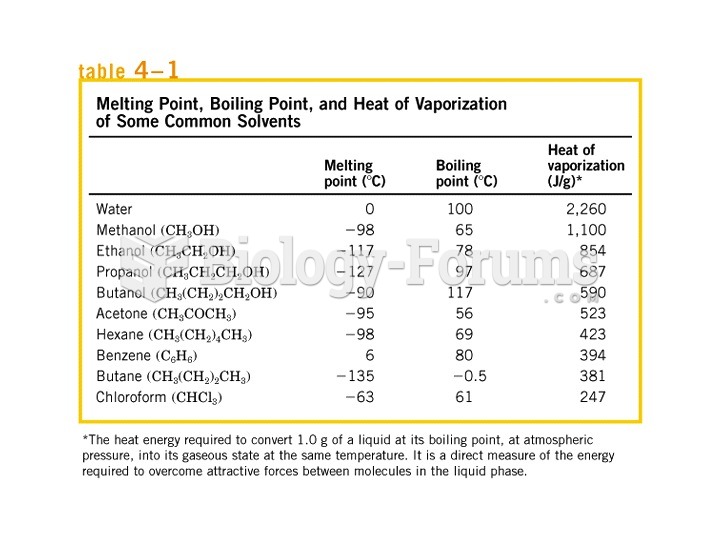|
|
|
The longest a person has survived after a heart transplant is 24 years.
There are more sensory neurons in the tongue than in any other part of the body.
The cure for trichomoniasis is easy as long as the patient does not drink alcoholic beverages for 24 hours. Just a single dose of medication is needed to rid the body of the disease. However, without proper precautions, an individual may contract the disease repeatedly. In fact, most people develop trichomoniasis again within three months of their last treatment.
Allergies play a major part in the health of children. The most prevalent childhood allergies are milk, egg, soy, wheat, peanuts, tree nuts, and seafood.
In the United States, there is a birth every 8 seconds, according to the U.S. Census Bureau's Population Clock.







